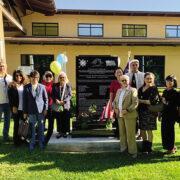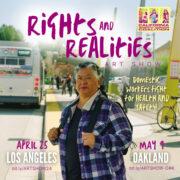SOME past homilies of priests are etched in our minds, shaping the way we think and live. In my experience, I remember two of them.
One was from an American Jesuit priest who directed my high school seminary retreat. With his American accent, he impressed on us, young seminarians, in “Tag-lish” (Tagalog-English):
“Believe sa sarili: patay!” (Believing oneself brings death!)
“Believe sa Diyos: buhay!” (Believing in God brings life!)
One may argue with this priest about his opposing contention of believing in oneself in today’s psychology, coaching, and self-improvement world. It’s not all bad to believe in oneself, we would say. We need a boost of self-confidence, of believing in one’s abilities to deal with life’s challenges.
But of course, we know what this priest tried to instill in our minds. He meant that we could not merely rely on our human capacities. We need God. We need Jesus, his Words, and the grace of the Sacraments!
Another homily of a priest I would recall is about a play of words on Christ and cross. The priest said:
“A Christless cross is a burdensome life, while a crossless Christ is an unfulfilling and meaningless life.”
Such wisdom has changed my outlook on suffering and the pursuit of happiness. To carry one’s cross—one’s struggles and pains—we need the strength of Jesus, which comes from the grace of the Holy Spirit, while to live life without sacrifice (cross) doesn’t give much joy and fulfillment.
Let’s look at the Gospel this Sunday (Mark 8:27-35) in the light of these two insights from these homilies. First, Jesus asked his disciples who people thought he was. In reply, they said, “John the Baptist, others Elijah, still others one of the prophets” Then he asked his disciples who they thought he was. Peter rightly answered, “You are the Christ.” Jesus, of course, was pleased with Peter’s reply.
But when Jesus taught his disciples that he would suffer greatly, be rejected by the elders, the chief priests, and the scribes, and be killed and rise after three days, Peter could not accept Jesus’ words. He still could not fully understand Christ’s life and mission on earth. And so, Jesus’ appreciation of Peter turned into disgust. He said to him, “Get behind me, Satan. You are thinking not as God does, but as human beings do.”
To address Peter as Satan was harsh, but we know that Jesus was directing these words, not to the person of Peter but Satan, the Enemy of Christ. The latter tried to prevent him from fulfilling his mission on earth. This attempt was true at the temptation of Jesus in the desert before the start of his mission.
As the new Adam, Jesus must obey his Father’s will to die on the cross to redeem us, which Peter could not still comprehend. Through death, Jesus will be raised to a new life that he would share with us.
It’s how we understand the Second Reading from the Letter of Saint James (2:14-18). “So also faith of itself, if it does not have works, is dead.” Jesus’ ultimate work on earth was to die on the cross to save us. In the same manner, we must accomplish our works on earth in the light of the ministry of Jesus. We fulfill our duties and responsibilities not merely for our sake but others so that they might live!
Belief in Christ and his sacrificial life and taking up one’s cross with the strength from our intimate relationship with Jesus would give us joy, consolation, and Eternal Life!.
* * *
The opinions, beliefs and viewpoints expressed by the author do not necessarily reflect the opinions, beliefs and viewpoints of the Asian Journal, its management, editorial board and staff.
* * *
Fr. Rodel “Odey” Balagtas is the pastor of Incarnation Church in Glendale, California.




